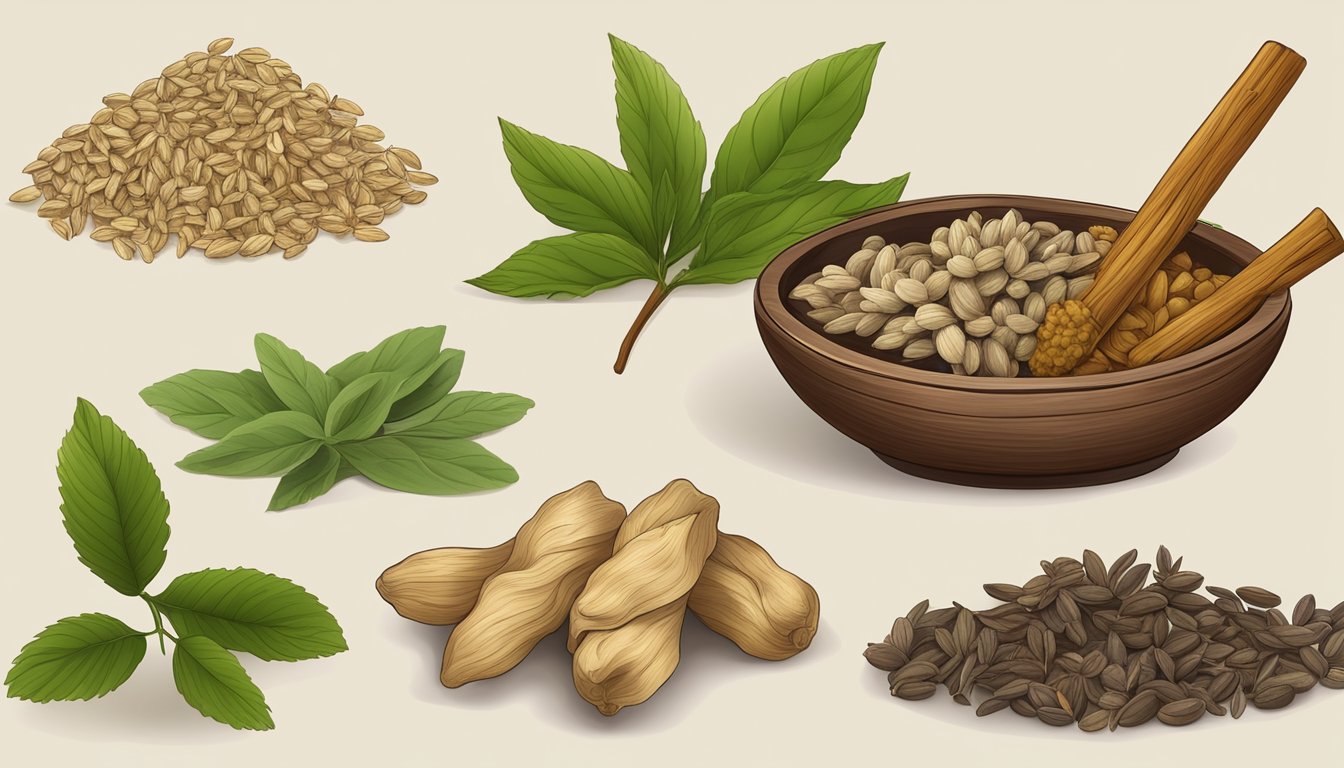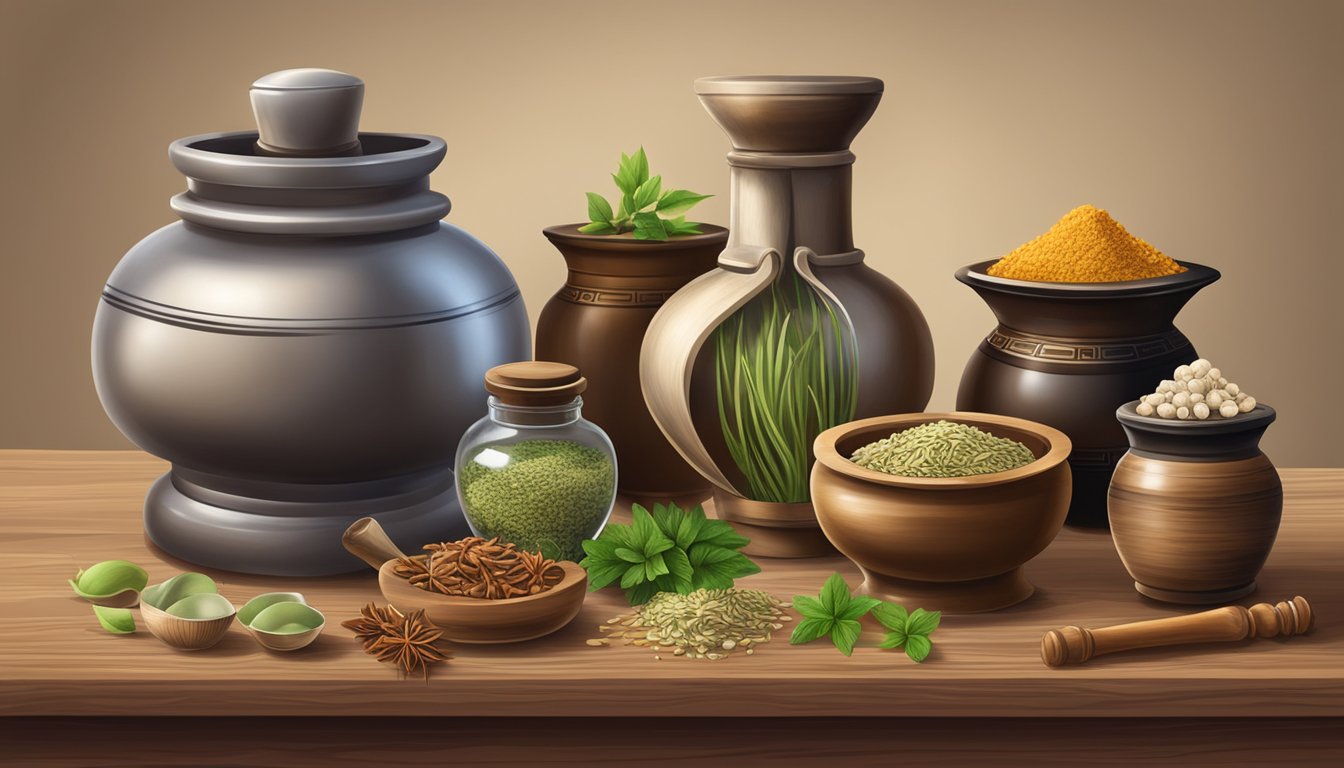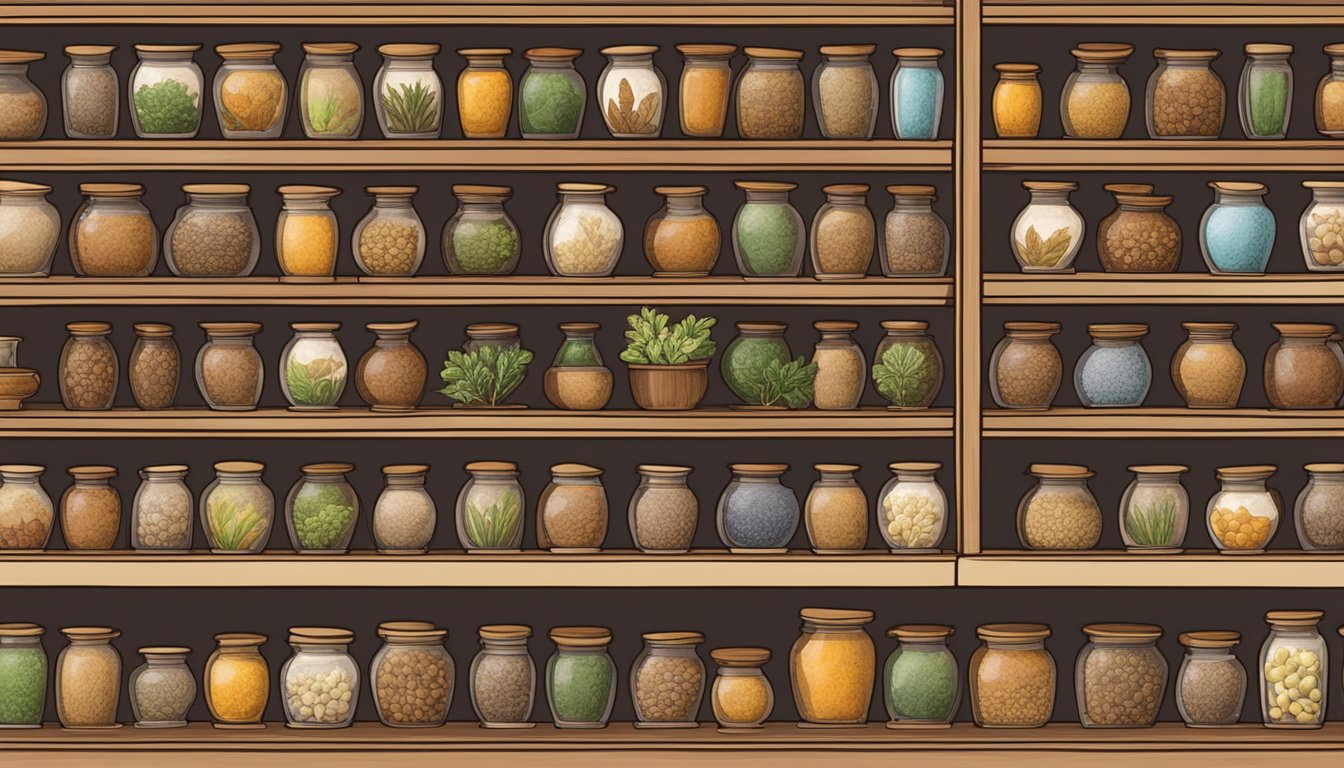TheHerbProf.com is a treasure trove of knowledge for those interested in natural healing and herbal remedies. The website is run by Paul Johnston MD. A naturopathic who has not only received extensive education in the field but also has personal experience in self-healing.
For centuries, traditional Chinese herbs have been utilized to address a broad spectrum of health issues. These herbs are a fundamental element of Traditional Chinese Medicine (TCM), which adopts a comprehensive perspective towards health and well-being. Practitioners of TCM hold the belief that the body’s energy, known as qi, circulates through pathways termed as meridians, and that disease arises when the flow of qi is obstructed. Traditional Chinese herbs are employed to reestablish equilibrium and harmony within the body, facilitating the unimpeded flow of qi.
There are thousands of traditional Chinese herbs, each with its unique properties and uses. Some herbs are used to treat specific conditions, while others are used to promote overall health and wellness. Traditional Chinese herbs can be used in a variety of forms, including teas, powders, and capsules. They can also be combined into formulas tailored to an individual’s specific needs. These formulas typically contain a combination of herbs that work together to address multiple aspects of a person’s health.
While traditional Chinese herbs have been used for centuries and are generally considered safe, it is important to consult with a qualified TCM practitioner before using them. TCM practitioners are trained to diagnose and treat health conditions using a combination of herbs, acupuncture, and other therapies. They can help you choose the right herbs for your specific needs and ensure that you are using them safely and effectively.
What Is Traditional Chinese Medicine?
Traditional Chinese Medicine (TCM) is a holistic approach to treating mental and physical health problems. It is based on the theory that sickness stems from an imbalance in a person’s life force energy, known as Qi. TCM aims to restore balance and harmony to the body by treating the root cause of the problem rather than just the symptoms.
Principles of TCM
TCM follows a set of principles that guide its diagnosis and treatment. These principles include Yin and Yang, the Five Elements, and the concept of balance and harmony. Yin and Yang are opposing forces that exist in everything and must be in balance for good health. The Five Elements are wood, fire, earth, metal, and water, and they represent different aspects of the body and the environment. Balance and harmony refer to the state of health where all aspects of the body are functioning properly.
History of TCM
TCM has a long history, dating back more than 2,000 years. It has evolved over time and incorporates elements of Taoism, Buddhism, and Confucianism. TCM originally included practices such as acupuncture, herbal medicine, and massage. Today, TCM also includes other practices such as cupping, moxibustion, and tai chi.
Yin and Yang
Yin and Yang are two opposing forces that exist in everything, including the body. Yang represents the masculine, light, and active aspects, while Yin represents the feminine, dark, and passive aspects. In TCM, good health is achieved when Yin and Yang are in balance.
Five Elements
The Five Elements are wood, fire, earth, metal, and water. Each element represents different aspects of the body and the environment. For example, wood is associated with the liver, fire with the heart, earth with the spleen, metal with the lungs, and water with the kidneys. TCM believes that good health is achieved when all the elements are in balance.
In summary, Traditional Chinese Medicine is a holistic approach to treating mental and physical health problems. It is based on the principles of Yin and Yang, the Five Elements, and the concept of balance and harmony. TCM aims to restore balance and harmony to the body by treating the root cause of the problem rather than just the symptoms.
Common Traditional Chinese Herbs

Traditional Chinese medicine (TCM) uses a variety of natural substances to promote health and treat ailments. Here are some of the most commonly used traditional Chinese herbs:
Astragalus
Astragalus membranaceus, also known as milkvetch, is a popular herb in TCM. It is often used to strengthen the immune system and promote overall health. Astragalus is also believed to have anti-inflammatory and antioxidant properties.
Cinnamon
Cinnamomum cassia, or cinnamon, is a spice that has been used in TCM for centuries. It is believed to have warming properties and is often used to improve circulation and digestion. Cinnamon is also thought to have anti-inflammatory and antimicrobial effects.
Ginkgo Biloba
Ginkgo biloba is a tree native to China that has been used in TCM for thousands of years. It is often used to improve cognitive function and memory. Ginkgo biloba is also believed to have antioxidant and anti-inflammatory properties.
Ginger
Ginger is a root that has been used in TCM for its warming properties. It is often used to treat digestive issues such as nausea and vomiting. Ginger is also believed to have anti-inflammatory and antioxidant effects.
Ginseng
Ginseng is a root that has been used in TCM for its energizing properties. It is often used to improve mental and physical performance. Ginseng is also believed to have anti-inflammatory and antioxidant effects.
Gotu Kola
Gotu kola is a plant that has been used in TCM for its ability to improve cognitive function and memory. It is also believed to have anti-inflammatory and antioxidant properties.
Licorice
Licorice is a root that has been used in TCM for its ability to soothe the throat and digestive system. It is often used to treat coughs and sore throats. Licorice is also believed to have anti-inflammatory and antioxidant effects.
Red Yeast Rice
Red yeast rice is a type of rice that has been fermented with a type of yeast called Monascus purpureus. It is often used in TCM to lower cholesterol levels and improve circulation.
Turmeric
Turmeric is a spice that has been used in TCM for its anti-inflammatory and antioxidant properties. It is often used to treat digestive issues and improve liver function.
Overall, traditional Chinese herbs can be a helpful addition to a healthy lifestyle. However, it is important to consult with a qualified healthcare practitioner before using any herbal remedies, especially if you have a medical condition or are taking prescription medications.
Health Benefits of Traditional Chinese Herbs
Traditional Chinese herbs have been used for centuries to promote overall health and well-being. These herbs have been shown to have a variety of benefits for the immune system, brain health, anti-inflammatory properties, cholesterol management, hair health, and stomach ulcer relief.
Immune Support
Many traditional Chinese herbs have immune-boosting properties. For example, astragalus root has been shown to enhance the immune system’s ability to fight off infections. Additionally, reishi mushrooms have been found to have anti-inflammatory and antioxidant properties that help support the immune system.
Brain Health
Certain traditional Chinese herbs have been shown to have brain-boosting properties. For example, ginkgo biloba has been found to improve cognitive function and memory. Additionally, gotu kola has been found to have a calming effect on the brain and may help improve focus and concentration.
Anti-Inflammatory Properties
Inflammation is a common factor in many chronic health conditions. Traditional Chinese herbs have been found to have anti-inflammatory properties that can help reduce inflammation in the body. For example, turmeric has been shown to have powerful anti-inflammatory effects and may help reduce the risk of chronic diseases such as heart disease and cancer.
Cholesterol Management
High cholesterol is a risk factor for heart disease. Traditional Chinese herbs have been found to have cholesterol-lowering effects that can help reduce the risk of heart disease. For example, red yeast rice has been shown to lower LDL cholesterol levels, which is the “bad” cholesterol that can contribute to heart disease.
Hair Health
Certain traditional Chinese herbs have been found to have benefits for hair health. For example, he shou wu has been used for centuries to promote hair growth and reduce hair loss. Additionally, ginseng has been found to improve blood circulation to the scalp, which can help promote healthy hair growth.
Stomach Ulcer Relief
Stomach ulcers can cause discomfort and pain. Traditional Chinese herbs have been found to have stomach ulcer-relieving properties. For example, licorice root has been found to have anti-inflammatory properties that can help reduce inflammation in the stomach lining and promote healing of stomach ulcers.
In conclusion, traditional Chinese herbs have a variety of health benefits for the immune system, brain health, anti-inflammatory properties, cholesterol management, hair health, and stomach ulcer relief. Incorporating these herbs into your diet and lifestyle may help promote overall health and well-being.
Things to Consider When Using Traditional Chinese Herbs

Chinese herbs have been used for thousands of years to treat a variety of health conditions. However, it is important to consider several factors before using them. Here are some things to keep in mind:
Finding a Reputable Source
It is essential to find a reputable source when purchasing Chinese herbs. Some herbs may be contaminated with heavy metals, pesticides, or other harmful substances. Look for a supplier that follows Good Manufacturing Practices (GMP) and has a Certificate of Analysis (COA) for each batch of herbs.
Consulting with a Trained Practitioner
Consulting with a trained Traditional Chinese Medicine (TCM) practitioner is crucial before using Chinese herbs. The practitioner will evaluate your health condition and prescribe the appropriate herbs and dosages. They may also suggest other TCM treatments such as acupuncture, tai chi, or qigong.
Potential Side Effects
Like any medication or supplement, Chinese herbs may cause side effects. Some herbs may interact with medications, so it is important to inform your TCM practitioner of any medications you are taking. Common side effects of Chinese herbs include digestive issues, headaches, and skin reactions. If you experience any adverse reactions, stop taking the herbs and talk to your TCM practitioner immediately.
Special Considerations (Pregnancy, Medication Interactions)
If you are pregnant or breastfeeding, it is important to consult with your healthcare provider before taking Chinese herbs. Some herbs may be harmful to the developing fetus or the nursing baby. Additionally, some herbs may interact with medications, so it is important to inform your TCM practitioner of any medications you are taking.
Combining with Other Treatments
Chinese herbs may be used in combination with other treatments such as Western medicine, acupuncture, or massage therapy. It is important to inform all healthcare providers of the herbs you are taking to avoid any potential interactions. Always follow the recommended dosages and do not exceed them.
In conclusion, Chinese herbs can be a beneficial addition to your healthcare regimen when used properly. By finding a reputable source, consulting with a trained TCM practitioner, being aware of potential side effects, considering special circumstances, and combining with other treatments, you can safely and effectively incorporate Chinese herbs into your health routine.
Before You Go – Traditional Chinese Herbs

In conclusion, Traditional Chinese Medicine (TCM) has been used for thousands of years in China for the treatment and symptom management of a wide range of medical conditions. TCM is an important example of how ancient and accumulated knowledge is applied in a holistic approach in present-day health.
The crude extract library of an authentic collection of TCM herbs has been developed to facilitate systematic research and drug discovery. Traditional Chinese herbs have a considerable number of drug-like natural products and predicted activities to the targets of various diseases.
Plants, herbs, and ethnobotanicals have been used since the early days of humankind and are still used throughout the world for health promotion and treatment of disease. The constituents of Chinese herbal medicine compounds have been reported in journals of Chinese Traditional and Herbal Drugs.
Our research showed that the traditional Chinese herbs involved in herbal tea did have ingredients to alleviate CSP symptoms. However, the current research could not draw any credible conclusions on the curative effect of herbal tea, which indicates that the overall level of TCM clinical research needs to be improved to evaluate the efficacy and safety of TCM.
In summary, TCM is a valuable resource for natural products and drug discovery. However, further research is needed to fully understand the mechanisms of action of TCM and to evaluate its efficacy and safety.
Linking to Our Home Page
Herbs are the stars of the show in traditional Chinese medicine, and our home page, theherbprof.com, and our post on “Traditional Chinese Herbs” are like two sides of the same coin. They complement each other perfectly!
Our home page is a herbal haven. It’s packed with information about various herbs, their uses, benefits, and much more. It’s a one-stop-shop for all your herbal needs!
On the other hand, our post on “Traditional Chinese Herbs” is a focused exploration of the herbs used in traditional Chinese medicine. It’s a quick guide for anyone who wants to delve into this ancient practice.
When you read them together, you get a complete picture of the world of herbs. The home page gives you a broad understanding, while the post provides a deep dive into specific herbs. It’s like having a map and a magnifying glass at the same time!
So, why wait? Start your herbal journey with us today! And remember, every herb has a story to tell, and we’re here to help you hear it.
References – Traditional Chinese Herbs
Little Herb Encyclopedia, by Jack Ritchason; N.D., Woodland Publishing Incorporated, 1995
The Ultimate Healing System, Course Manual, Copyright 1985, Don Lepore
Planetary Herbology, Michael Tierra, C.A., N.D., Lotus Press, 1988
Handbook of Medicinal Herbs, by James A. Duke, Pub. CRP Second Edition 2007
The Complete Medicinal Herbal, by Penelope Ody, Published by Dorling Kindersley
Check the Following Articles!
What are the 20 Commonly Used Herbs in the Kitchen?
Home Remedies for Sunburn: A Herbalist’s Guide!
What Herbs Can Be Planted Together?
What Are The 10 Most Used Herbs: Number 4 Is The Best!
Frequently Asked Questions – Traditional Chinese Herbs
What are the benefits of using Chinese herbal medicine?
Chinese herbal medicine has been used for thousands of years to treat a wide variety of health conditions. The benefits of using Chinese herbs include improved overall health and wellness, relief from pain and inflammation, improved digestion, increased energy, and enhanced immune function.
How do Chinese herbs work to improve health?
Chinese herbs work by balancing the body’s natural energy, or Qi. By restoring balance to the body, Chinese herbs can help to alleviate a wide range of health conditions, including chronic pain, digestive disorders, respiratory issues, and more.
What are some common Chinese herbs used in traditional medicine?
Some common Chinese herbs used in traditional medicine include ginseng, astragalus, licorice root, ginger, and goji berries. These herbs are often used to treat a variety of health conditions and are known for their healing properties.
What are the potential side effects of using Chinese herbs?
While Chinese herbs are generally safe to use, there is a risk of side effects, especially if they are not used correctly. Some potential side effects of using Chinese herbs include nausea, dizziness, headaches, and allergic reactions. It is important to work with a qualified practitioner of traditional Chinese medicine to ensure that you are using the herbs safely and effectively.
Are there any interactions between Chinese herbs and Western medicine?
Yes, there can be interactions between Chinese herbs and Western medicine. It is important to inform your healthcare provider of any herbs or supplements you are taking, as they may interact with prescription medications or other treatments.
What should I look for when selecting a practitioner of traditional Chinese medicine?
When selecting a practitioner of traditional Chinese medicine, it is important to look for someone who is licensed and experienced. You should also look for someone who is knowledgeable about the specific herbs and treatments that are best suited to your individual needs. It is also important to feel comfortable with your practitioner and to be able to communicate openly and honestly about your health concerns.


